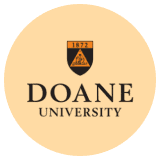
Doane University, Nebraska’s oldest private institution, has become a national leader in designing and delivering rigorous, fully online science programs tailored to meet the needs of adult learners and post-baccalaureate students. With over 40 online courses, nearly 300 sections, and more than 4,000 students served annually across all 50 states, Doane’s Open Learning Academy is reshaping what quality STEM education looks like outside the traditional classroom.
The Challenge
Delivering high-quality science education online is no small feat, especially for a student population with complex needs. Doane serves a diverse demographic of learners who require scheduling flexibility, transferable credit, and courses that match the academic integrity of on-campus offerings. These students, many pursuing careers in pharmacy, physical therapy, and health sciences, need hands-on lab experiences that prepare them for real-world professional settings, not passive online simulations.
Doane set out to design a fully online STEM curriculum that was:
- Equitable and accessible for all learners
- Academically rigorous and aligned with on-ground course objectives
- Flexible in modality (asynchronous, paced, self-paced)
- Transferable and recognized by graduate and professional schools
- Built by teams with instructional design expertise and department-level buy-in
Meet the Innovators: Erin May and Dr. Andrea Holmes
Erin May, M.Ed., serves as the Director of Extended Learning Opportunities at Doane University. With a background in developing online courses across STEM and humanities disciplines, Erin focuses on creating flexible learning pathways that maintain academic rigor.
Dr. Andrea Holmes, a Professor of Chemistry and Coordinator for Online Learning at Doane, brings her expertise in organic chemistry to the forefront of online education. With a Ph.D. from New York University and postdoctoral work at Columbia University, she has been instrumental in integrating hands-on lab experiences into online courses.
Both educators have also been named Online Program Pioneers of the Year as part of the 2025 Golden Goggles Awards.

Dr. Andrea Holmes, Professor of Chemistry and Coordinator for Online Learning

Erin May, Director of Extended Learning Opportunities
Scaling Quality: The Open Learning Academy Approach
To meet these goals, Doane implements a comprehensive framework for online development:
- Backwards design to ensure learning outcomes and consistency
- ADA compliance and review of all third-party tools
- Quality Matters-trained instructional designers
- Mandatory first-run teaching by course developers
- Built-in revision cycles with a dedicated curriculum team
- Instructor-led courses with embedded student services including proctoring and tutoring
Every department designates an Online Curriculum Coordinator to ensure academic alignment and consistency across formats.
“Our goal is to make online science education not just accessible, but personal and powerful. We design every course with the student in mind, making flexibility, rigor, and support requirements,” shared Erin May, M.Ed.
Reimagining the Chemistry Curriculum
The chemistry program exemplifies Doane’s commitment to innovation and excellence. The curriculum was overhauled with:
- New adaptive and non-adaptive assignments
- Fresh video content recorded by instructors
- Robust quizzes and a final exam built from dynamic databases
- Updated grading schemes
- Redesigned lab experiences through a strategic partnership with Science Interactive that included:
- High-quality kits with lab-grade materials
- Curriculum that meets Quality Matters certification
- Safety-first design, including PPE, microscale chemicals, and training
- Kits designed for customization or ready-made use
- Seamless logistics and shipping to students
The Lab Experience, Step by Step
- Students order their kits during week zero
- They complete a safety module and kit inventory in week one
- Early in the term, they perform a virtual lab simulation
- Mid-semester, students complete 3–4 hands-on labs from home
- Experiments vary in length, from a few hours to overnight
- Students upload reports, photos, and results via the Lab Portal
- Instructors review submissions and provide feedback
This model gives students the experiential learning they need on their own schedule and in their own space.
The Results
Doane’s program is not only robust; it’s respected. The chemistry labs are accepted by faculty as equivalent to on-ground labs, and credits are recognized by other universities and professional programs. Students benefit from:
- Experiential learning in both digital and physical formats
- Rigorous academic alignment with traditional on-campus courses
- Confidence-building lab experiences using real materials
- Transfer-ability for continued education and career advancement
Erin and Andrea have successfully scaled OLA’s online offerings while ensuring academic excellence and accessibility. They emphasize the importance of faculty collaboration and the use of innovative tools to replicate the rigor of on-campus labs in an online environment.
“We’ve proven you can offer flexibility, even in Chemistry lab courses, while maintaining a rigorous and high-touch learning experience,” said Dr. Holmes.
By partnering with Science Interactive, OLA provides students with both virtual and hands-on lab opportunities, ensuring that learning outcomes match those of traditional courses.
Looking Ahead: Continuing Innovation in STEM Education
Doane University’s online science program proves that fully remote education doesn’t have to sacrifice quality or credibility. Through intentional design, expert collaboration, and a close partnership with Science Interactive, the university has built a scalable model for high-impact STEM instruction that meets students where they are and prepares them for where they’re headed.
For more tips and best practices on supporting student success, check out our Peer Learning webinar on demand.